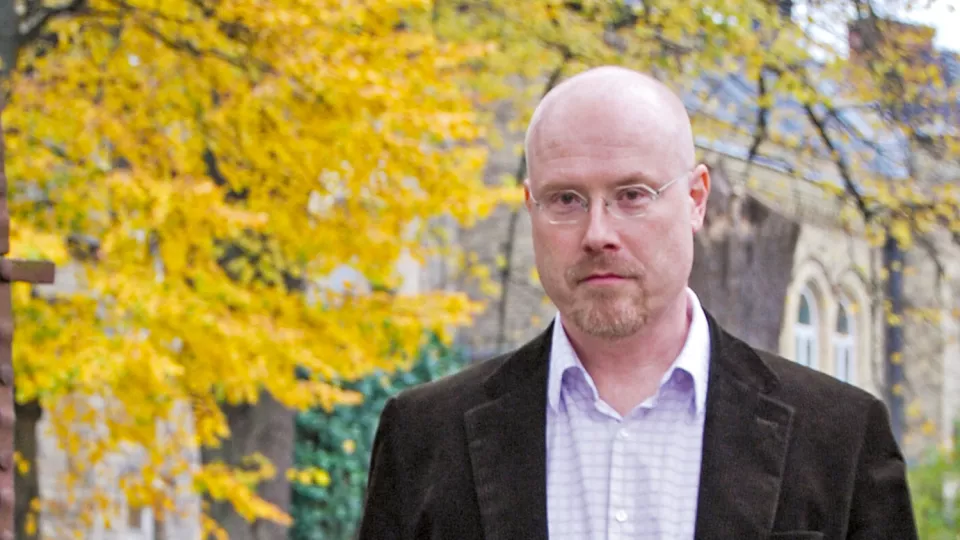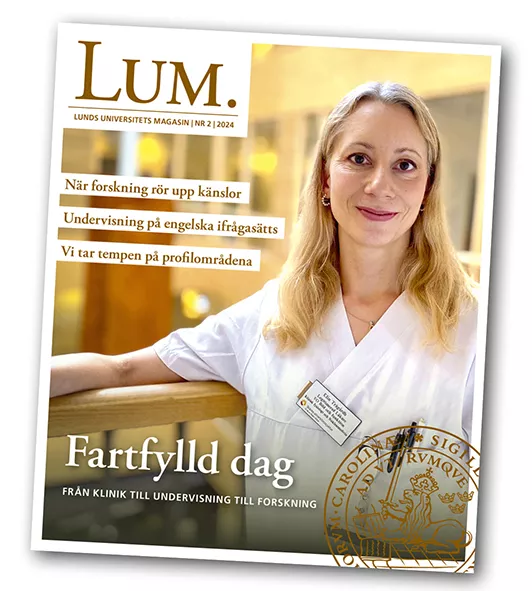The agency capital currently amounts to SEK 1.7 billion. The University will primarily lose money from the international students outside the EU – the so-called fee-paying students. Last year SEK 124 million was brought in from these students and exactly how much will be lost this year is currently difficult to estimate. Part of the money for this year has already been received.
Other incoming students on, for example, Erasmus scholarships brought in SEK 65 million last year. The students within this group who have already paid but who are not coming here – or have returned home – will not be reimbursed. LU's position is that it continues to offer education at a sufficiently high level digitally.
Fewer free-movers mean Swedish students can take these places
The so-called free movers who apply on their own initiative from an EU country are likely to be fewer, which in turn means that Swedish students can take these places. Applications have increased by 16 per cent compared to last year, so it will not be difficult to fill the places in the future. Some programmes, particularly at Master's level, which are dependent on a larger proportion of incoming students, may need to be put on hold or re-designed.
"It is unfortunate for the programmes affected and obviously creates additional work. However, the University can afford to underproduce for a period of time given that we have overproduced for many years", says Tim Ekberg.
One vulnerable group is the doctoral students who have their four years of funding to complete their studies, as well as postdocs who cannot travel or be received due to travel restrictions.
When it comes to established research, there are several international projects that have been put on hold or that have been put on the backburner; however, Tim Ekberg expects consideration, understanding and generosity from the research funding bodies on this. It is also likely that the research bill in the autumn will be coloured and affected by the consequences of the coronavirus pandemic.
"Hopefully the Swedish Government will invest even more in research in the future to further reinforce the foundations for Sweden as a knowledge nation."
"Within several areas it is possible to talk about an involuntary recruitment hiatus"
Tim Ekberg says the University's biggest expense is salaries and that many teaching and research positions have not been filled as planned, as these need to be advertised in broad competition and internationally.
"Within several areas it is possible to talk about an involuntary recruitment hiatus. However, there is no clear picture of the financial impact of this yet."
There is also concern in the organisation about what will happen to the revenue-driven units that will not meet their budgets and other areas where there will be a lack of work due to the pandemic.
"Those who are employed have their salaries of course", says Tim Ekberg. "Moreover, the University sees no need to lay off staff. In the long term, however, a downturn in the global economy could negatively affect the allocation of research funds from external funders."
The Planning Office is also carrying out business intelligence work and Tim Ekberg is seeing how student mobility in particular will be affected by the current pandemic and the risk of future pandemics.
"Prior to the pandemic, the international globalisation movement was already facing resistance through increased nationalism and protectionism, and now the risk is that it will become worse. Even after the world starts to open up there is a risk that students will choose to remain in or closer to their home countries".
It is a worrying trend and Tim Ekberg says it is important that we do not crawl back into our shells and instead work for continued openness between the world's universities.
New summercourses for actors, pilots and journalists
At home, we also need to work on adapting our education to the new needs of the labour market. Within the Education Board there is a working group working to produce new study packages. In addition, there is a flurry of activity with regard to the summer courses for which the Government has recently allocated funding. Three examples of summer courses that address the effects of the pandemic include a course for actors, one for journalists and one for pilots, offered by the School of Aviation. Other summer courses are being updated and offered again.
"The faculties are positive about the summer courses; however, there is also a concern among the currently extremely busy teaching staff that their summer holidays are in danger. Naturally, there will not be any obligation for teaching staff to work on summer courses", says Tim Ekberg.
The significant pressure on the teaching staff during the spring semester has primarily related to the digitisation of all their teaching and in most cases also the exams.
"We have spoken about digitisation for ten years and now – practically overnight – we have been able to offer digital education to 40 000 students. Amazing! Now the important thing is not to fall back in our old ways", believes Tim Ekberg. 'Blended learning' is the new normal.



